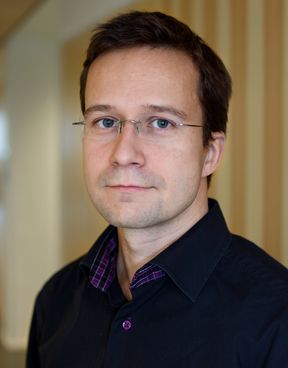Environmental technology is a way of thinking

Ville Alopaeus, who works as a professor in the field of chemical engineering, received the grant in 2011, when he had initiated, along with his group, research connected with ionic liquids. Ionic liquids are organic salts in liquid form that are used as solvents and catalysts in the chemical industry. Ionic liquids are also generated as secondary reactions of carbon dioxide recovery.
‘Ionic liquid was, for a long time, the magic term used when funding for projects was wanted. Now the boom’s on the decline and what’s coming up is a phase where these fine ideas must really be made to work – and that’s where our expertise is needed,’ Ville Alopaeus emphasizes.
Profitable technology is thus not necessarily born immediately from even the most splendid inventions. Ville Alopaeus brings up the ecological loncell fibre produced from birch cellulose, which has been developed by the research group under his Aalto University colleague, Herbert Sixta.
‘It is precisely ionic liquids that are used in the production of the fibre,’ he relates. ‘If we want to make production profitable, the circulation of the fluids must be made to work – and that’s exactly where my group is focused.’
The basis of environmental technology companies rests in traditional engineering competence.
Professor Alopaeus emphasizes that environmental technology should no longer be examined separately from other fields but rather as a way of thinking that penetrates everything, in both education and industry.
‘In some universities, it’s a degree programme of its own – but with us it’s an integral part of all teaching. That said, we should remember that the basis of environmental technology companies rests in traditional engineering competence,’ he points out.
The purpose of the Environmental Technology Fund named after CEO Tapani Järvinen is to promote research in environmental technology. Each year, a grant of EUR 5 000–10 000 is allocated to a distinguished expert in environmental technology for research and development work. The purpose of this grant is to promote research in industrial environmental technology as well as the utilization of research results as technological products and services.
This year, the size of the grant is EUR 10 000, and the application period will end on 15 December. More information (in Finnish) here!
Read more news

Apply Now: Unite! Visiting Professorships at TU Graz
TU Graz, Austria, invites experienced postdoctoral researchers to apply for two fully funded visiting professorships. The deadline for expressions of interest is 20 February 2026, and the positions will begin on 1 October 2026.Soil Laboratory Exhibition – Exploring the Dialogue Between Human and the Earth in Utsjoki
Soil Laboratory explores the relationship between humans and the earth as a living landscape through ceramic practices in Utsjoki.
The Finnish Cultural Foundation awarded grants for science and art
A total of 15 individuals or groups from Aalto University received grants






